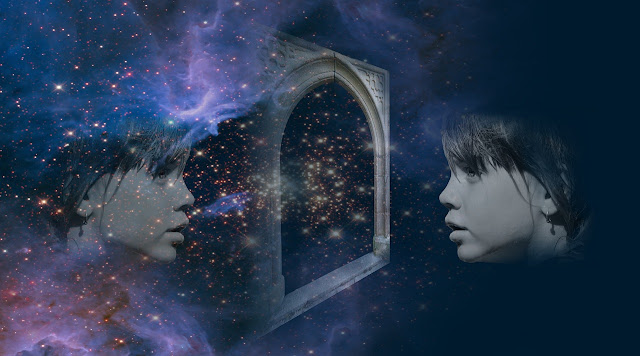The idea that "All the World's a Stage and All the People are Merely Characters" is an important concept rooted in New Thought Teaching. This spiritual movement, originating in the late 19th century, posits that individuals aren't actors in the traditional sense. Instead, they're embodiments of divine expressions, each guided by a singular animator - God. This perspective challenges the conventional view of free will and self-determination, offering a viewpoint that celebrates the interconnectedness of all life.
At the heart of New Thought Teaching lies the belief in a universal intelligence, often referred to as God. This intelligence is seen as the driving force behind all creation, imbuing each individual with purpose and direction. This leads to a profound sense of interconnectedness, suggesting that all beings share a common source of existence.
Contrary to the belief in individual autonomy, New Thought suggests that true freedom lies in recognizing our alignment with the divine will. Rather than being merely actors with independent roles, people are seen as channels through which the divine purpose is expressed. This perspective encourages surrendering personal will to the higher guidance of the Divine Animator.
Central to New Thought Teaching is the power of the mind to shape reality. Through practices like creative visualization, individuals are encouraged to align their thoughts and desires with the divine intention. This process serves as a means of co-creation, where individuals participate in bringing forth their unique expressions while remaining attuned to the overarching design of the Divine Animator.
By acknowledging the Divine Animator as the source of all life, New Thought Teaching fosters a sense of unity among individuals. This perspective transcends divisions based on race, religion, or nationality, emphasizing the common spiritual heritage that unites humanity. It promotes a compassionate and inclusive approach to life, fostering a collective endeavor towards the greater good.
In summary, the concept that "All the World's a Stage and All the People are Merely Characters" in New Thought Teaching offers a profound reimagining of human existence. It invites individuals to see themselves not as isolated actors, but as vessels through which the divine purpose is manifested. This perspective calls for a deepening of one's spiritual connection and an alignment with the higher will. Ultimately, New Thought Teaching reminds us that in recognizing the Divine Animator, we find our truest purpose and contribute to the harmonious unfolding of the grand cosmic narrative.
Here are some additional references for further reading on New Thought Teaching and related concepts:
James Allen:
- As a Man Thinketh (1903)
- The Mastery of Destiny (1909)
- The Way of Peace (1907)
Florence Scovel Shinn:
- The Game of Life and How to Play It (1925)
- Your Word is Your Wand (1928)
- The Secret Door to Success (1940)
Napoleon Hill:
- Think and Grow Rich (1937)
- The Law of Success (1928)
Ernest Holmes:
- The Science of Mind: The Definitive Edition (2001)
- This Thing Called You (1948)
Emma Curtis Hopkins:
- Scientific Christian Mental Practice (1924)
- High Mysticism (1923)
Prentice Mulford:
- Your Forces and How to Use Them (1888)
- Thoughts Are Things (1908)
Thomas Troward:
- The Edinburgh and Dore Lectures on Mental Science (1904)
- The Creative Process in the Individual (1915)
Ralph Waldo Trine:
- In Tune with the Infinite (1897)
- The Higher Powers of Mind and Spirit (1917)

Comments
Post a Comment